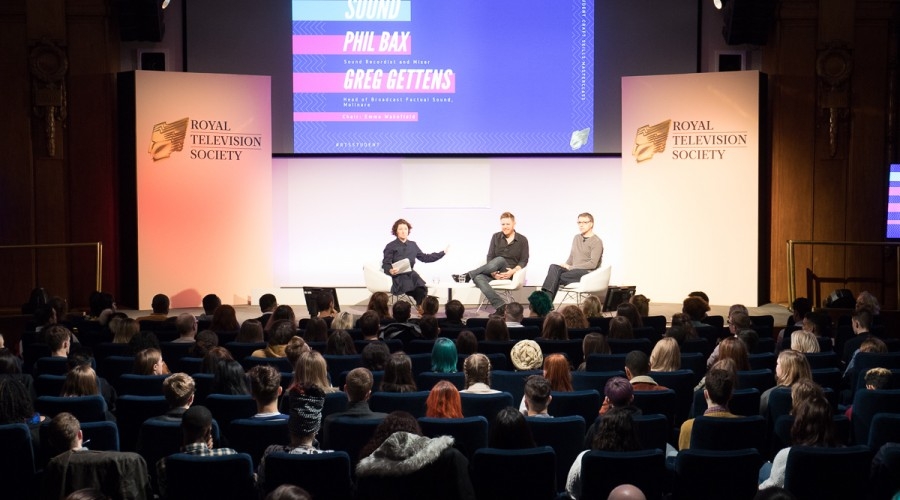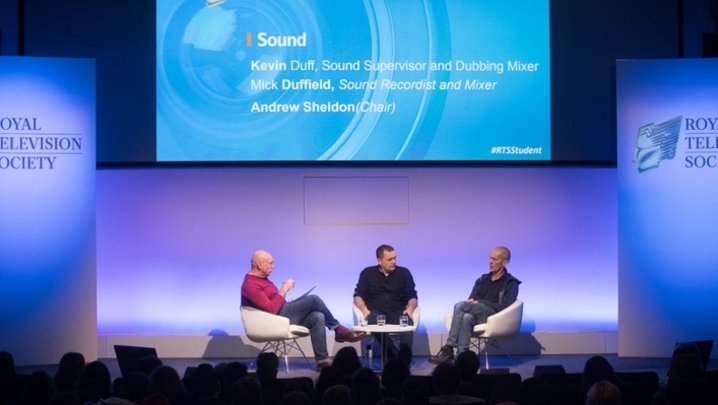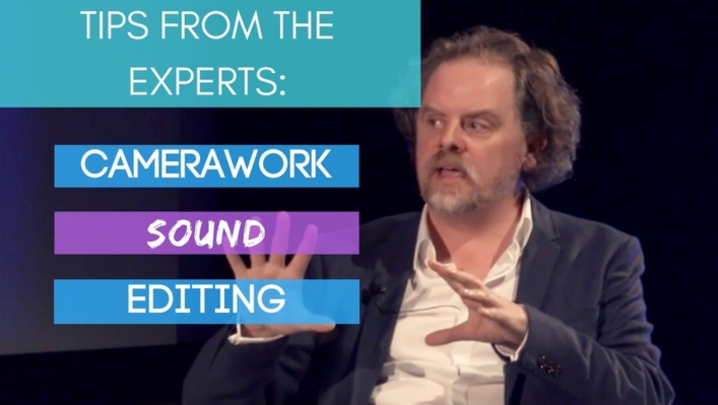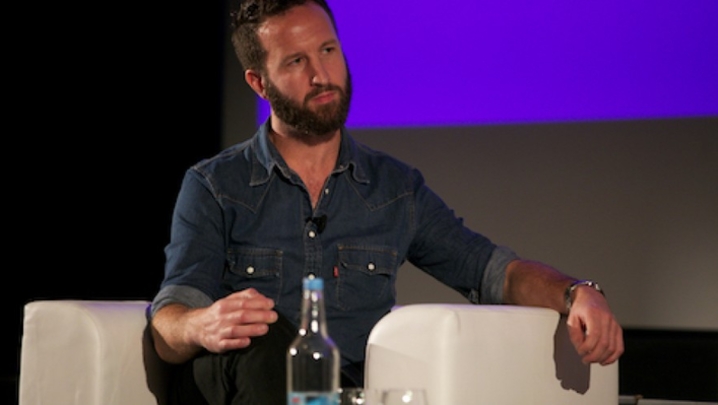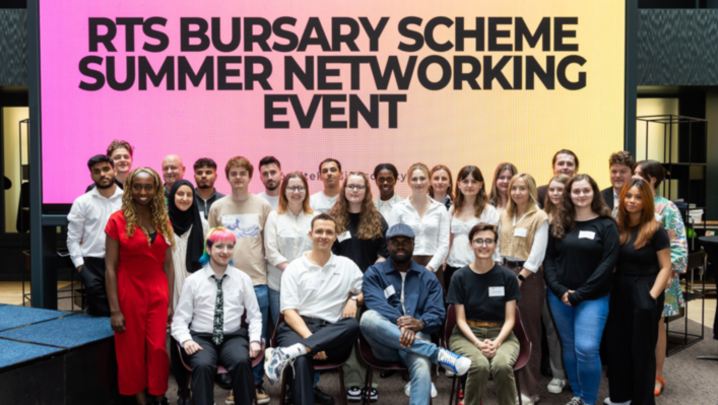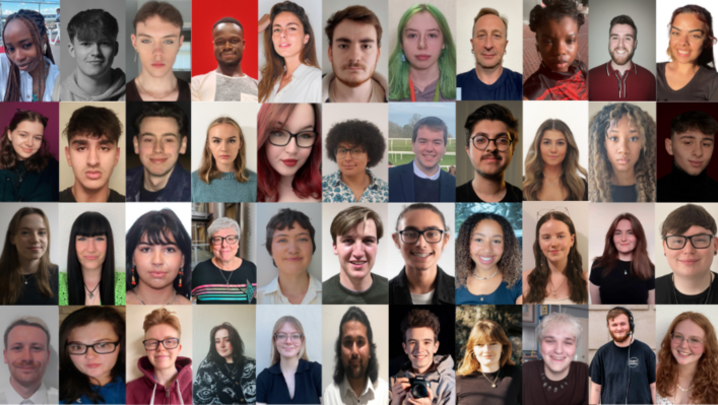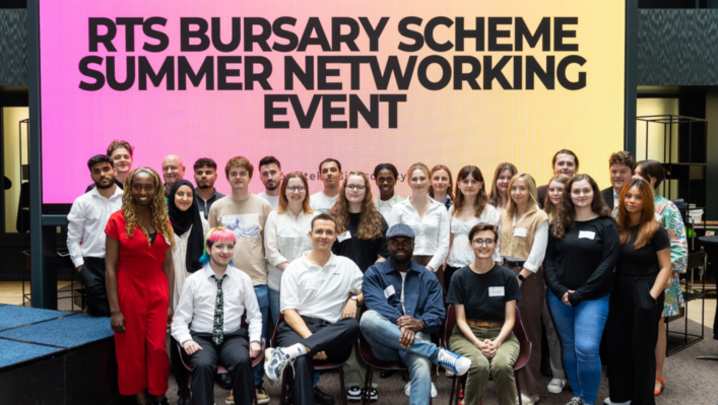The sound masterclass was a two-hander, featuring sound recordist Phil Bax and Molinare’s head of broadcast factual sound, Greg Gettens.
Bax experienced the high life on BBC One documentary Supersized Earth, working on a ledge at the top of the Burj Khalifa, the world’s tallest building. Gettens added “explosions and bullets whizzing around people’s heads” to BBC One’s D-Day the Last Heroes.
Lambert Productions MD Emma Wakefield led the conversation at the RTS Craft Skills Masterclasses.
Explaining how television works with sound, Gettens said: “Phil records the sound on location, which is brought back [to a post-production house] and put into an edit suite [to produce] a rough sound track … We add music, effects and sound design, which is mixed to produce the final mix you hear on telly.”
Pro Tools “is the industry standard – every single post house in the UK will have it.”
Personality and perseverance are the keys to his job: “A lot of the time I’m in a dark room for 10 hours a day, five days a week with other editors – they have to get on with you. It’s not all about sounds; a lot of it is about personality.Be one of those people who is always there, getting things sorted, so, [the job requires] perseverance.”
Gain experience, added Bax: “Anything at all is better than nothing – have something tangible rather than just talk [to show employers].”
Building relationships is important, too: “Over the last 15 or so years I’ve worked on all sorts of documentary projects, but with a small cohort of the same directors, production managers and camera people. If you work together once and get on well, you work together again – and you end up forming these teams that carry on.”
And, try anything: “I did a live broadcast in Germany [for MTV] … so I wrote to the BBC, saying ‘I’m an outside broadcast mixer.’ They put me on a gantry at a football match with a bit of rusty old equipment that didn’t work and a commentator who berated me all afternoon. I realised I didn’t want to do football matches, but use an opportunity rather than dismissing it outright – then you find out what you want to do.”
On working with directors, Bax suggested: “Ask lots of questions about what they’re expecting you to do and then use your experience to [identify] possible pitfalls.” Gettens added: “Listen to what the director wants to achieve and deliver it.”
On single sound/camera operators: “If you’ve got a person dedicated to each [part of the filming process], you’re going to get a better result,” said Bax. But, added Gettens: “We’re trying to get the best sound possible. So, if [you are] in a confined space with only room for one person with a camera and microphone, that’s what you have to work with. It’s easy for us to say you should have a sound man in every job … but it just doesn’t work like that because of budget limitations.”
Docs v dramas: “In documentary, you’re trying to … get as close as possible to what it would sound like if you were there and try to enhance that; in drama, you’re trying to dramatise [a situation] so you can be more dynamic and exciting in the kind of sounds you can use. And there’s a difference in time: with documentary sound, you’ll get four or five days if you’re lucky; for a drama you get two weeks to do the dub and sound effects, then a further [week] mixing,” revealed Gettens.


